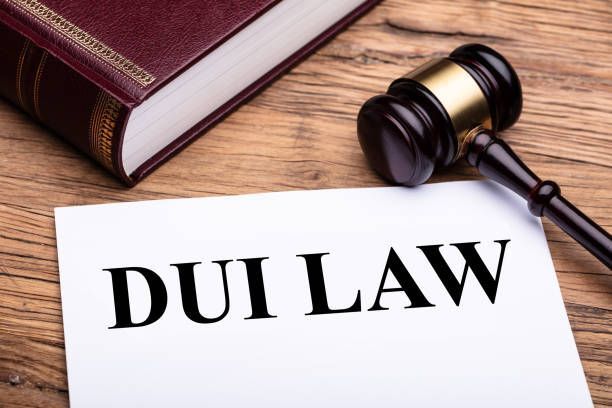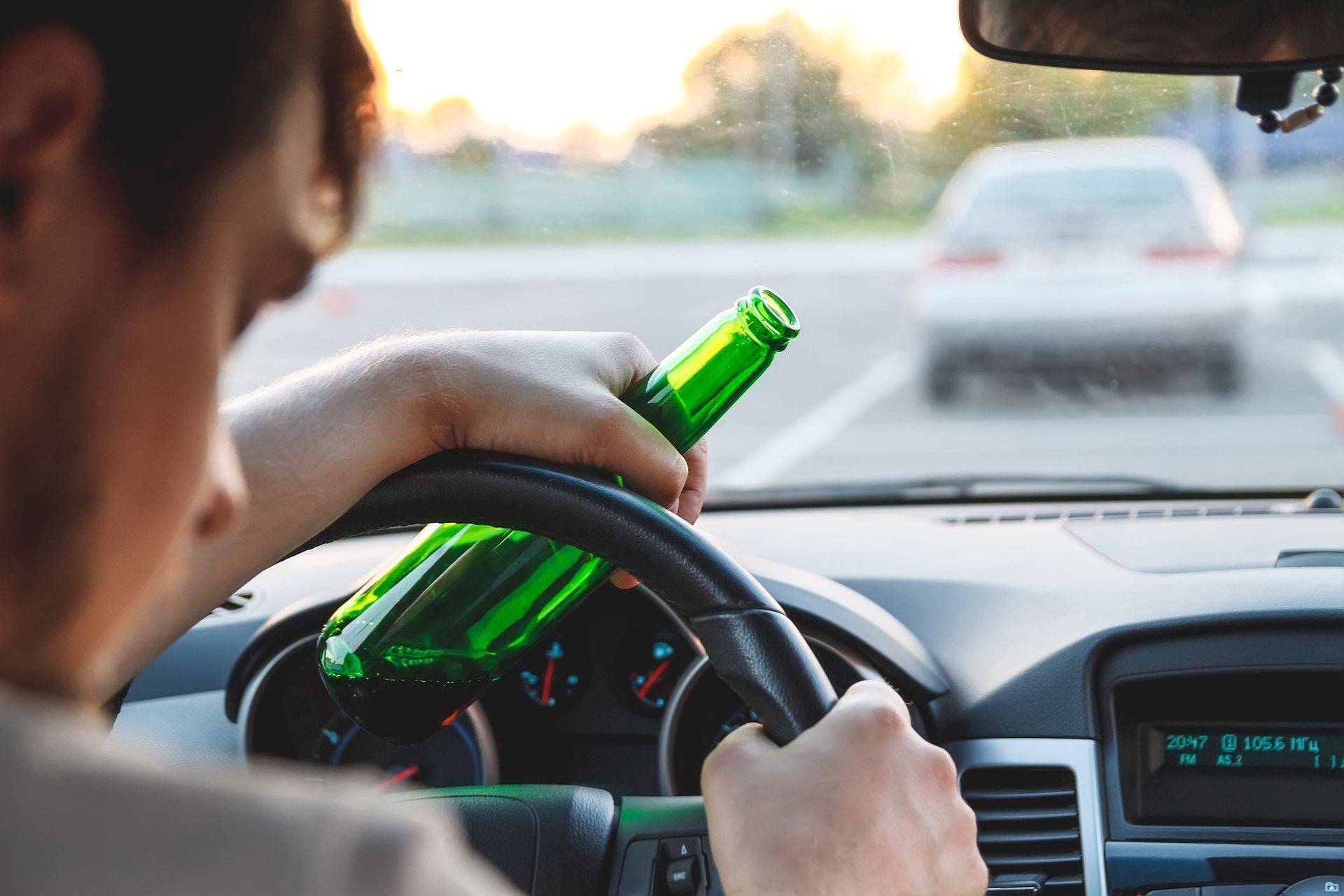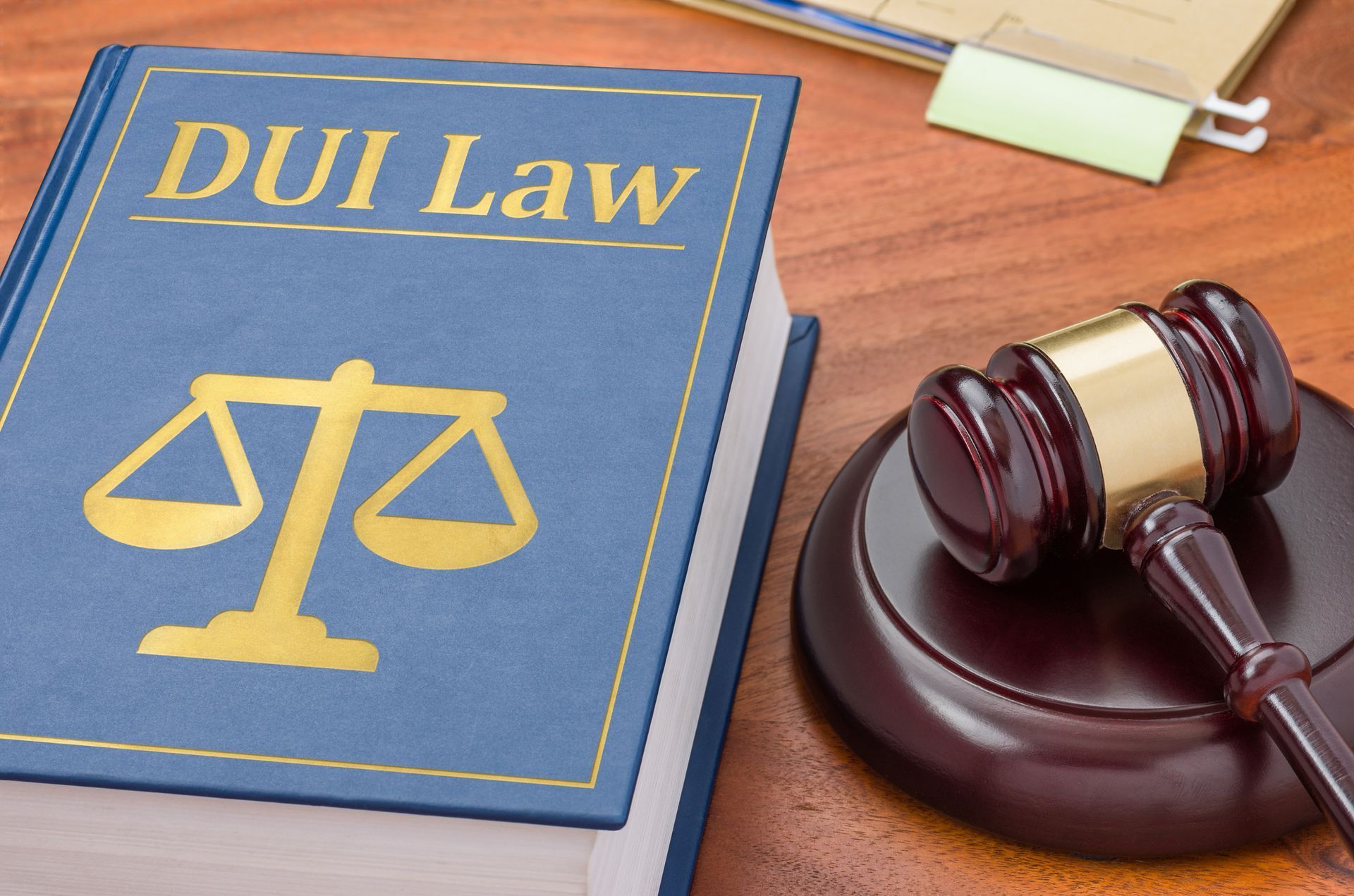Defense Strategy From a DUI Lawyer for Field Sobriety Tests
November 3, 2025

Facing a DUI charge can be overwhelming, especially when field sobriety tests are used as evidence against you. As a DUI lawyer serving Nassau County, FL, Epstein & Robbins frequently helps residents navigate the tricky terrain of DUI charges by scrutinizing the evidence gathered during roadside stops. Understanding how to challenge field sobriety tests is crucial for building your defense and may even make the difference between conviction and acquittal. This article is designed to inform residents about how and why these tests can be questioned in court, and how Epstein & Robbins stands by your side every step of the way.
Understanding Florida’s Field Sobriety Tests
Law enforcement in Nassau County, FL, commonly uses field sobriety tests (FSTs) during traffic stops to establish probable cause for a
DUI
arrest. These assessments, when administered, can significantly impact the trajectory of your case. A DUI lawyer knows that the validity of these tests is rarely as ironclad as prosecutors claim. The three main tests standardized by the National Highway Traffic Safety Administration (NHTSA) are the Horizontal Gaze Nystagmus (HGN), the Walk and Turn, and the One Leg Stand. Each is designed to help police identify impairment, but a closer look reveals that their reliability can be questionable, and an adept defense can capitalize on these shortcomings.
Standardization Issues: No Two Roads (or Bodies) Are the Same
The effectiveness of FSTs depends heavily on standardization, but real-life conditions in Nassau County, FL, often fall short of the controlled environments in which these tests were developed and studied. For example, the Walk and Turn and One Leg Stand require flat, dry, and non-slippery surfaces—conditions that may not always be present on roadsides. Furthermore, nuances like roadside lighting, traffic distractions, weather, and uneven pavement can compromise test results, making it vital for your DUI lawyer to investigate the circumstances under which these assessments were administered.
Equally important are individual differences among drivers. Age, weight, footwear, and medical conditions such as vertigo, arthritis, or neurological disorders can all impact test performance. Even anxiety or fatigue can play a role. The implication? Sobriety test results can mistakenly indicate impairment where none exists. A strategic defense from Epstein & Robbins scrutinizes every detail surrounding your roadside encounter to cast doubt on field test conclusions.
Equally important are individual differences among drivers. Age, weight, footwear, and medical conditions such as vertigo, arthritis, or neurological disorders can all impact test performance. Even anxiety or fatigue can play a role. The implication? Sobriety test results can mistakenly indicate impairment where none exists. A strategic defense from Epstein & Robbins scrutinizes every detail surrounding your roadside encounter to cast doubt on field test conclusions.
Horizontal Gaze Nystagmus: The Eye Test That Isn’t Foolproof
The HGN test seeks to detect involuntary eye movement, which officers claim is present when a person is under the influence. However, several medical and natural causes—like fatigue, eye strain, or certain medications—can produce similar eye movements. Sometimes, an officer’s training or technique may also be in question, potentially leading to inaccurate observations or results. A qualified DUI lawyer serving Nassau County, FL, from Epstein & Robbins can cross-examine law enforcement on these issues, often revealing enough uncertainty to weaken the prosecution's case.
Walk and Turn & One Leg Stand: More Than Just Balance
Both the Walk and Turn and the One Leg Stand are used by officers to detect impairment through divided attention tasks—physical balance combined with mental instructions. But how reliable are these measures for someone who is naturally uncoordinated or nervous under the scrutiny of flashing blue lights? The reality is, roadside conditions in Nassau County, FL, can present physical challenges that have nothing to do with intoxication. Shoes, injuries, and even the presence of gravel or potholes can all skew these results.
Epstein & Robbins frequently highlights these standardization issues. By bringing into question environmental, physical, and instructional inconsistencies, your DUI lawyer is often able to erode the reliability of the evidence being leveled against you.
Epstein & Robbins frequently highlights these standardization issues. By bringing into question environmental, physical, and instructional inconsistencies, your DUI lawyer is often able to erode the reliability of the evidence being leveled against you.
Medical and Physical Conditions: Are FSTs Fair to Everyone?
For many residents of Nassau County, FL, underlying health issues make it virtually impossible to pass field sobriety tests—regardless of sobriety. Conditions such as inner ear disturbances, leg or back injuries, and neurological conditions can all lead to “failed” tests. Diabetes, which can cause hypoglycemia and affect motor skills, is another factor that can create misleading appearances.
When cross-examining the arresting officer and cross-referencing your medical records, your DUI lawyer can demonstrate that these physical performances were not truly indicative of impairment but rather a reflection of health limitations. Recognizing and documenting these issues can be a pivotal element in your case.
When cross-examining the arresting officer and cross-referencing your medical records, your DUI lawyer can demonstrate that these physical performances were not truly indicative of impairment but rather a reflection of health limitations. Recognizing and documenting these issues can be a pivotal element in your case.
Unique Lighting, Surfaces, and Environmental Factors
Picture this: You’re pulled over along a dimly lit rural route or on a stretch of Amelia Island Parkway. The surface is uneven, cars are speeding by, and the nearest light source is your own headlights. These aren’t ideal testing conditions—yet they're real situations in Nassau County, FL.
Epstein & Robbins knows that most roadside FSTs in Nassau County, FL, take place amid distracting, unpredictable, and less than optimal conditions. As a result, your ability to perform these tests can be dramatically reduced, regardless of sobriety. It's critical for your DUI lawyer to bring these context factors to light in court, challenging the prosecution’s narrative and exposing reasonable doubt.
Epstein & Robbins knows that most roadside FSTs in Nassau County, FL, take place amid distracting, unpredictable, and less than optimal conditions. As a result, your ability to perform these tests can be dramatically reduced, regardless of sobriety. It's critical for your DUI lawyer to bring these context factors to light in court, challenging the prosecution’s narrative and exposing reasonable doubt.
Implied Consent in Florida: Know Your Rights
Under Florida law, driving is considered a privilege, not a right. This “implied consent” means that if you are lawfully arrested by an officer who has probable cause to believe you are driving under the influence, you are deemed to have consented to chemical testing (breath, blood, or urine).
Here’s what many Nassau County, FL, drivers don't realize: Field sobriety tests are not required under Florida’s implied consent law. Participation is entirely voluntary. Officers often don’t clarify that you have the right to decline these tests. However, refusing FSTs carries no direct administrative penalty—unlike refusing a breathalyzer, which can result in your license being suspended. This distinction is important, and your DUI lawyer can use an officer’s failure to inform you of these rights to craft a stronger defense.
Meanwhile, refusing a chemical test (such as a breath or blood test) after arrest does trigger automatic penalties, including license suspension. But the results from FSTs are subjective, open to challenge, and, in many cases, the weakest link in the prosecution’s evidence chain.
Here’s what many Nassau County, FL, drivers don't realize: Field sobriety tests are not required under Florida’s implied consent law. Participation is entirely voluntary. Officers often don’t clarify that you have the right to decline these tests. However, refusing FSTs carries no direct administrative penalty—unlike refusing a breathalyzer, which can result in your license being suspended. This distinction is important, and your DUI lawyer can use an officer’s failure to inform you of these rights to craft a stronger defense.
Meanwhile, refusing a chemical test (such as a breath or blood test) after arrest does trigger automatic penalties, including license suspension. But the results from FSTs are subjective, open to challenge, and, in many cases, the weakest link in the prosecution’s evidence chain.
Building a Solid Defense With Epstein & Robbins
Challenging DUI field sobriety tests isn’t just about poking holes in law enforcement’s case—it’s about raising doubts that make it impossible to convict you “beyond a reasonable doubt.” Epstein & Robbins, as a leading DUI lawyer, is adept at investigating every angle:
By leveraging these strategies, clients in Nassau County, FL, and Fernandina, FL , have seen reduced charges, dismissals, or acquittals, even when chemical test results exist. The power to challenge your field sobriety test is a powerful legal shield that should never be overlooked .
- Did the officer properly instruct and observe you during each test?
- Were there environmental or health factors influencing the results?
- Did the officer inform you that participation in FSTs is voluntary?
- Are there inconsistencies in the police report or video evidence?
By leveraging these strategies, clients in Nassau County, FL, and Fernandina, FL , have seen reduced charges, dismissals, or acquittals, even when chemical test results exist. The power to challenge your field sobriety test is a powerful legal shield that should never be overlooked .
When to Reach Out to a DUI Attorney
If you’ve been arrested for DUI in Nassau County, FL, the sooner you act, the better your chances. Collect every piece of documentation you received, write down your recollection of the traffic stop, and avoid discussing your case with anyone except your DUI lawyer. Prompt legal action allows your defense team, like those at Epstein & Robbins, to scrutinize physical evidence, request roadside footage, and build a sound legal strategy tailored to your circumstances.
A DUI attorney can also investigate whether your rights were respected throughout the process, including whether you were advised of your right to refuse FSTs or if your medical conditions were properly considered. Obtaining legal guidance early in your case gives you the highest chance for a fair outcome.
A DUI attorney can also investigate whether your rights were respected throughout the process, including whether you were advised of your right to refuse FSTs or if your medical conditions were properly considered. Obtaining legal guidance early in your case gives you the highest chance for a fair outcome.
Contact a DUI Lawyer at Epstein & Robbins Now
If you or a loved one is contending with a DUI arrest, don’t let questionable field sobriety tests determine your future. Epstein & Robbins, a seasoned DUI lawyer serving Nassau County, FL, knows how to challenge these tests and will stand with you throughout every stage of the legal process. Protect your rights, challenge the evidence, and increase your chances of a favorable outcome. Call Epstein & Robbins today at
(904) 354-5645
to schedule your confidential consultation. Your defense starts now—don't wait to secure your future.
Recent Posts
November 26, 2020
When people hear the charge of Driving Under the Influence, they typically think of driving under the influence of alcohol. However, under Florida law, a person
November 8, 2020
If you have been convicted of DUI in Florida, the court may order you to have an ignition interlock device (IID) installed on your vehicle. Depending on the
October 27, 2020
Residents from all over the nation travel to Florida. While many will enter the state through air travel, many will still operate a motor vehicle in the state.
October 11, 2020
Drug use is a controversial issue, but in the end drugged driving in Florida can be just as dangerous as drunk driving, and people in the Jacksonville can face
September 27, 2020
Getting together with friends and family to watch the big game, be it college or NFL, is a great way to spend an evening, especially if your team wins. Good









